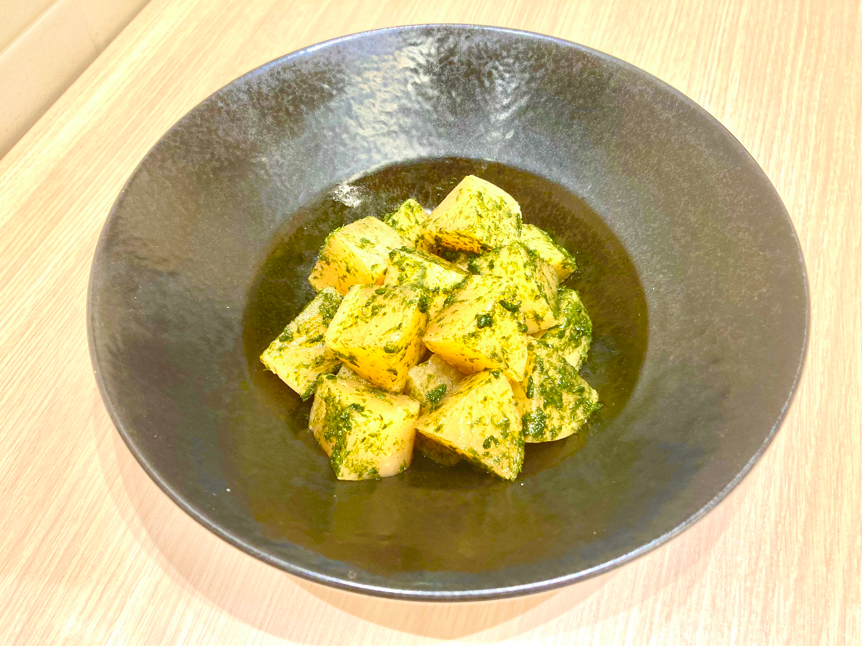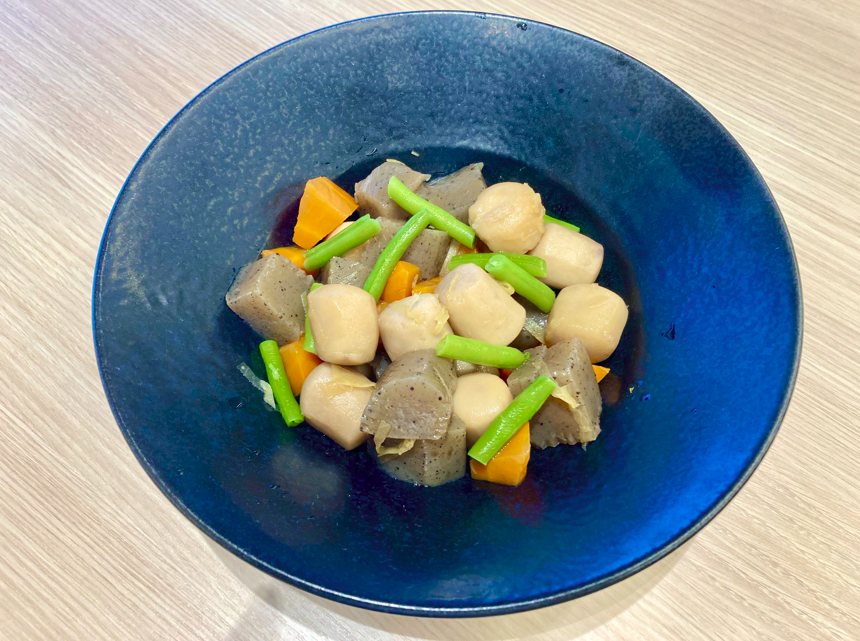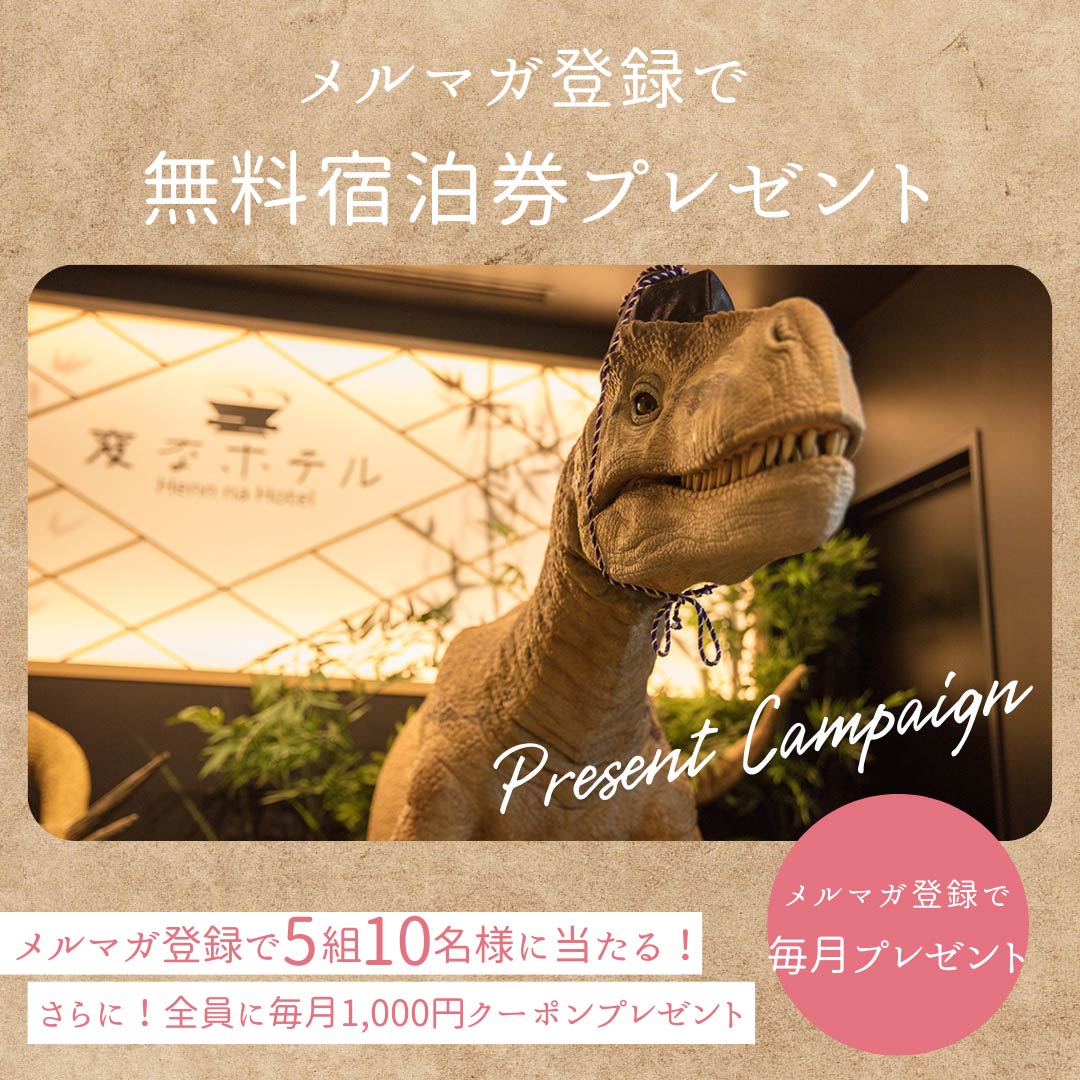February Breakfast: Introduction to the Monthly Special Menu♪
NoticeRestaurant
Welcome to Henn na Hotel Tokyo Hamamatsucho.
Thank you very much for your continued patronage of Henn na Hotel Tokyo Hamamatsucho!
1. Simmered Taro and Carrots
In the cold season of February, simmered root vegetables to warm the body were a staple in the Edo period.
Taro is such a common vegetable in Edo that when people say "potato," they usually mean taro. Many dishes involved simmering it in broth and seasonings to infuse flavor.
Carrots were also commonly used vegetables in Edo by the common people for cooking and were valued as ingredients that added color.
In February, our restaurant serves a simmered dish made with taro, carrots, and konjac, finished with a broth containing ginger sourced from Hamamatsucho (local area).
2. Simmered Daikon Radish with Aonori Seaweed
In the Edo period, daikon radish, white rice, and tofu were called the "Edo Three Whites" and were popular among common people. Among them, daikon was used in various dishes as a valuable source of nutrition in winter. When it gets cold, the daikon becomes sweet, and it was simmered lightly and mixed with seasonal green seaweed harvested in winter.
<Classic Edo Side Dishes>
Komatsuna Ohitashi (Boiled Japanese Mustard Spinach)
Simmered Thick Fried Tofu and Konjac


Please be sure to enjoy it during your stay.
We sincerely look forward to your visit. Please take care on your way here.
Address: 1-24-11 Hamamatsucho, Minato-ku, Tokyo
Phone: 03-3433-2030
Hotel Name: Henn na Hotel Tokyo Hamamatsucho
Make a reservation here

